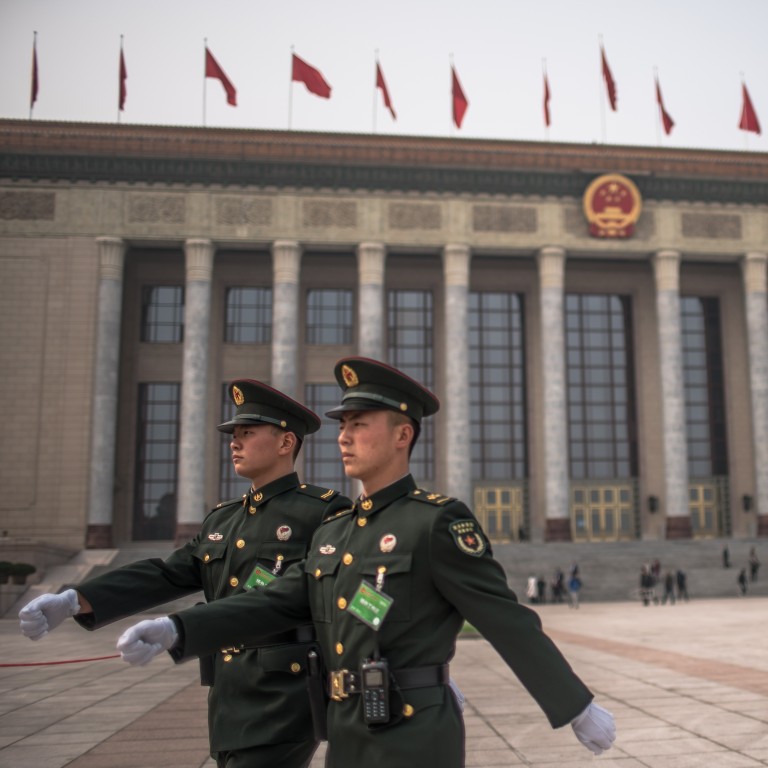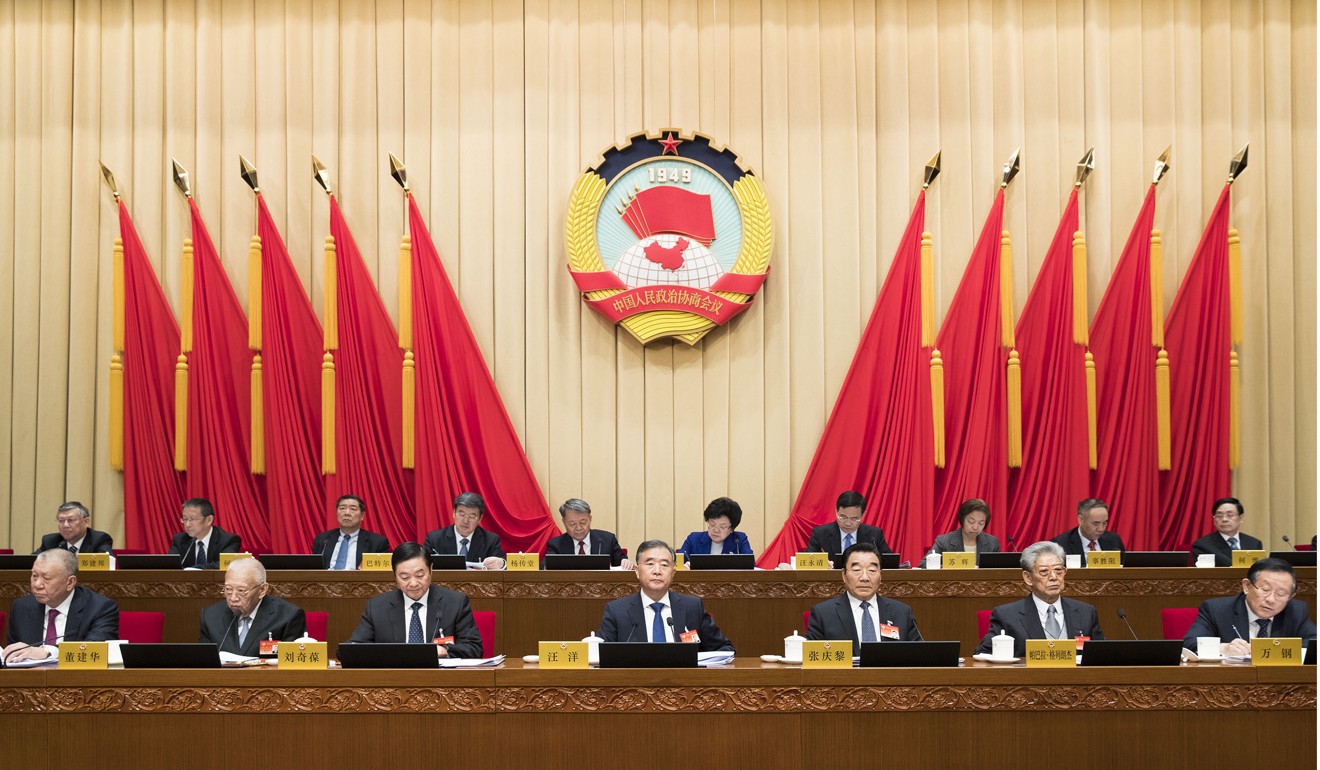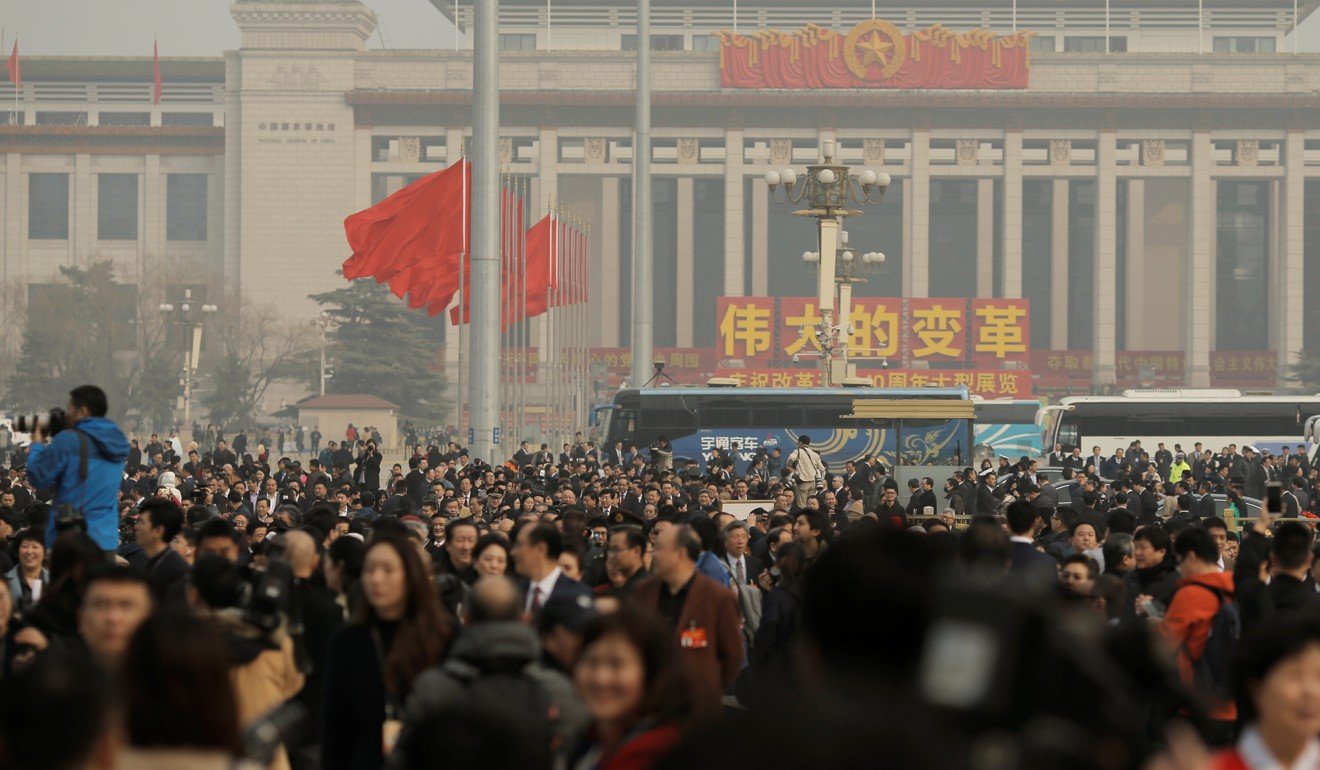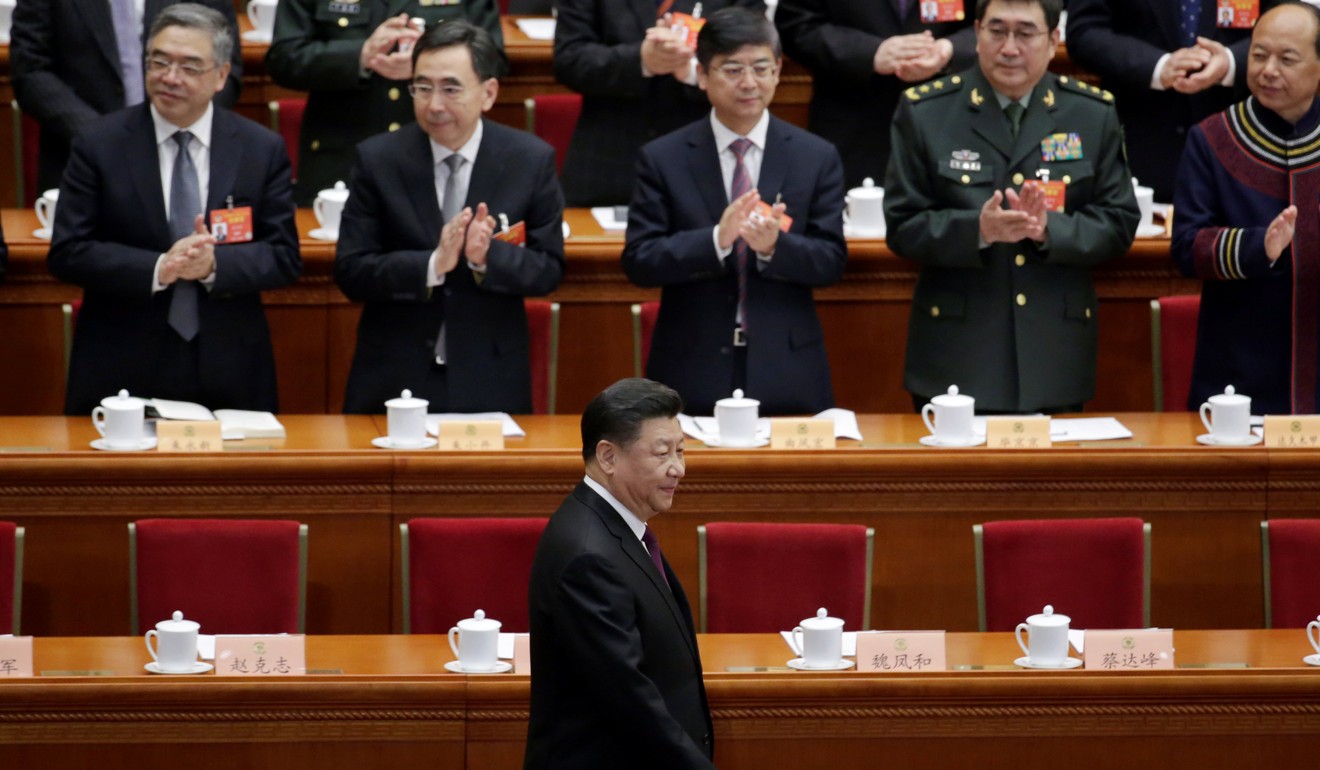
Chief of China’s top political advisory body highlights opposition to Hong Kong independence at the start of nation’s two-week annual parliamentary sessions
- Comment by Wang Yang, chairman of Chinese People’s Political Consultative Conference, came as he delivered his first work report
- In listing major achievements of the past year, Wang touches on Hong Kong under part about ‘committing ourselves to great unity and solidarity’
The head of China’s top political advisory body has listed its job of “unequivocally opposing Hong Kong independence” in its annual work report and pledged to fully implement the “one country, two systems” principle under which Beijing governs the city.
Reiterating Beijing’s opposition to Hong Kong independence, the comment by Wang Yang, chairman of the Chinese People’s Political Consultative Conference, came on Sunday as he delivered his first work report at the start of the nation’s two-week annual parliamentary sessions.

In listing the major achievements of the past year, Wang touched on Hong Kong under a part about “committing ourselves to great unity and solidarity”.
“We encouraged local delegates from Hong Kong and Macau to support their governments and chief executives in exercising law-based governance. We unequivocally opposed Hong Kong independence,” Wang said.
Going global: China’s lawmakers gear up for a new world order
Looking ahead, Wang said: “We will implement the one country, two systems principle comprehensively and accurately, under which the people of Hong Kong govern Hong Kong, the people of Macau govern Macau, and both regions enjoy a high degree of autonomy.”
The CPPCC would also support the cities’ governments and chief executives in law-based governance.
Wang said the CPPCC would continue to facilitate exchanges between young people from Hong Kong and the mainland, so that they could make policy recommendations on implementing the Greater Bay Area blueprint.
Beijing blasts US consul for questioning Hong Kong’s autonomy
In the 2019 working plan, Wang did not touch on Hong Kong independence, but stated that “we will continue our firm opposition to Taiwan independence”.
Local CPPCC delegate Thomas Pang Cheung-wai noted the report mentioned independence in the review part but not the working plan for the year ahead.

“We don’t need to mention it too deeply as we all understand that it has no market in Hong Kong.”
He believed it was more important to enhance youth work and encourage young people to step foot on the mainland through exchange programmes.
However, DAB chairwoman Starry Lee Wai-king added that it was important to demonstrate their stance on independence. “Any advocacy for independence is to destroy one country, two systems. We have to continue to be vigilant,” she said.
Lee believed the focus of the working plan was the Greater Bay Area, which she said was also a way to demonstrate one country, two systems.
CPPCC Standing Committee member Jonathan Choi Koon-sum said: “Wang has made Beijing’s stance on separatism very clear [to all delegates].”
Delegate Jeffrey Lam Kin-fung, a member of Hong Kong party the Business and Professionals Alliance, said that even though Wang did not specify opposition to independence in this year’s plans, local politicians still needed to continue to safeguard national sovereignty.
“Wang mentioned it once in his report and that’s clear enough … Separatism is absolutely intolerable for the country, the Chinese nation and the people of Hong Kong,” Lam said.
“Wang’s mention of accurate implementation of one country, two systems is also important as people have been twisting or misunderstanding it,” he added, without elaborating.

Lam also said his party would respond to Wang’s call by helping Hong Kong to integrate with mainland cities under the Greater Bay Area plan, and help youngsters to know more about the country. “It is our responsibility to lead young people in having exchanges on the mainland.”
This month’s annual CPPCC session is the second in the body’s 13th five-year term.
Bay area tax breaks only for high-end work, finance chief admits
Han is the state leader overseeing Hong Kong affairs and the Greater Bay Area plan.
Last year, Yu Zhengsheng, then chairman of the CPPCC, delivered his five-year work report, in which he said the body’s support for an interpretation of the Basic Law, which disqualified pro-independence lawmakers, had been an achievement. But he did not directly state his opposition to Hong Kong independence.
Meanwhile, several mainland officials attended a group meeting of the Hong Kong delegation to the National People’s Congress on Sunday. They included Xin Chunying, vice-chairwoman of the Legislative Affairs Commission, and Shen Chunyao, head of the Basic Law Committee.
Delegation convenor Ma Fung-kwok quoted Xin as saying delegates had a responsibility to attend meetings and raise constructive ideas.
“Quality is more important than quantity. Xin reminded us that we may combine some of our similar proposals,” he said.
A draft law on foreign investment, to be put forward and voted on in the coming meetings, was highlighted as important and Xin expressed hopes delegates would raise comments and pass the legislation, Ma added.
Additional reporting by Tony Cheung

